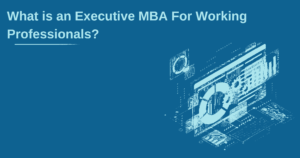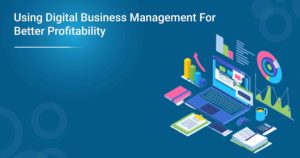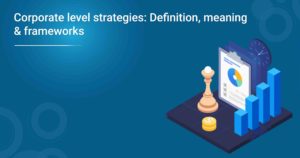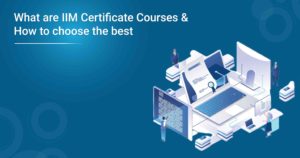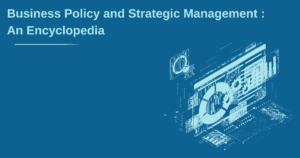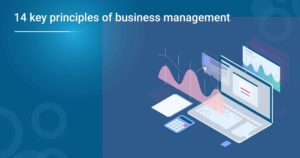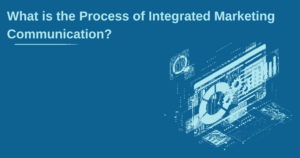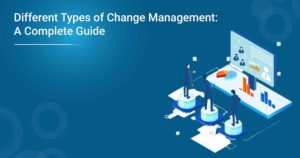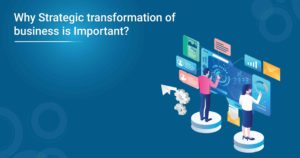As times change, so do the interview questions posed to leaders and managers who specialize in leading teams and organizations through transition. And while some core concepts remain the same, others require deeper reflection on handling the ever-evolving business landscape. 2025 is no exception. Change management professionals must be prepared to face some of the toughest questions when interviewing for a new job. To help you out, we’ve compiled a list of the top interview questions on change management that could be asked in 2025. Read on for insights into what might be asked of you during your next interview!
What is Change Management, And Why Do You Need To Prepare Interview Questions?
Change Management is the process of managing and implementing organizational change. It is a structured approach to transfer individuals, teams and organizations from a present state to a desired future state. Change management helps ensure that changes are properly planned, implemented and tracked to maximize positive impacts on an organization’s performance. Preparing interview questions on change management for candidates with experience allows employers to assess their qualifications, understand how they have managed change in past roles, identify potential problems or issues that could arise if the candidate were hired and gain insight into their thought process when it comes to leading successful transitions within an organization.
What Are The Employers Looking For While Hiring For Change Management Professionals?
When hiring a change management professional, employers are typically looking for candidates with experience leading and managing change within organizations. They want to see candidates who can effectively communicate the need for change to others and who have a track record of successfully implementing change initiatives.
In addition, employers are also looking for candidates who possess strong project management skills and a deep understanding of the principles of change management. Candidates should be able to demonstrate their ability to establish and implement change management plans that are tailored to the specific needs of an organization.
Finally, employers also want to see candidates committed to continuous learning and always looking for ways to improve their skillset. Change management is an ever-evolving field, and employers want to see candidates stay up-to-date on the latest trends and developments.
Top Interview Questions On Change Management
What Are The Important Roles of Change Managers?
Change Managers play a critical role in successful change initiatives. They help to ensure that the organization is prepared to implement and manage change effectively, guiding how best to transition from one state to another. Change Managers are responsible for leading the process of planning, implementing, monitoring, adjusting and evaluating changes within an organization.
The ideal answer to this question would be: Change Managers should have a deep understanding of organizational dynamics and strong communication skills so they can effectively lead teams through any change initiative. Additionally, they must possess excellent problem-solving skills to identify potential risks and develop plans for mitigating them before implementation begins.
What Are The Risks Associated With Production Change Processes?
Production change processes can involve many different stakeholders and teams, which means there is a greater risk of errors and miscommunications. Changes in production also carry financial risks due to equipment downtime or loss of revenue from incorrectly implemented changes. Additionally, changes to existing processes can lead to employee resistance as they may be unfamiliar with new systems or procedures. Finally, some changes require regulatory approval that could delay the process significantly if not obtained in time. To mitigate these risks, organizations must have thorough change control processes that involve all stakeholders and ensure regulatory compliance during implementation.
What is The Most Difficult Aspect of A Change Manager’s Job?
The most challenging aspect of a Change Manager’s job is managing all the stakeholders involved in the change, including end-users, customers and other colleagues. Employers ask this question to see if the candidate has experience in building strong relationships between multiple parties and navigating complex dynamics.
The best answer includes demonstrating specific examples of successfully managing stakeholder relationships through implementing changes, such as identifying their concerns, adjusting communication approaches or leveraging problem-solving techniques. The candidate should demonstrate an understanding that stakeholder engagement is crucial for successful change management and how it can drive positive outcomes when done properly.
What Challenges Does A Change Manager Face Concerning Innovation?
Innovation is a key component of successful change management, and as such, it presents some unique challenges to the change manager. In an interview, employers may ask these interview questions on change management to gauge the candidate’s understanding of how innovation can influence a change management strategy.
The best answer will demonstrate an understanding that innovation requires creativity, complex problem solving and effective communication skills to drive positive results. Moreover, the candidate should be able to discuss how they would motivate team members and create an environment for creative thinking by setting objectives and providing feedback on progress towards them.
Ultimately, concerning innovation, employers want someone who can think outside of the box while staying organized when dealing with multiple tasks or changes at once.
Also Read: What is an Executive MBA For Working Professionals?
What Are The Top Skills That A Change Manager Must Have?
Change management plays an essential role in any organization’s transformation. As such, employers need to ensure that the individuals they hire possess the skills and expertise necessary to manage change in their work effectively. One of the prime skills employers look for when interviewing potential change managers is strong communication and interpersonal skills, problem-solving abilities, analytical thinking, an understanding of organizational dynamics and politics, project management experience, conflict resolution capabilities, and excellent facilitation abilities.
Employers ask this interview question on change management to better understand a candidate’s suitability for the role based on relevant experiences and qualifications. The best answer should highlight those particular qualities that make you uniquely qualified as a change manager while demonstrating your knowledge of what makes a successful one — such as having proven success leading teams through major changes with minimal disruption or resistance.
How would You Persuade Employees To Change Their Working Culture?
Employers may ask this question to assess an applicant’s ability to think outside the box and develop creative solutions. This is important because it demonstrates their capacity for innovation and adapting to changing circumstances.
The best answer will involve understanding the employee’s wants, needs, and preferences while also considering organizational goals. It should involve persuasion without forcing or coercing employees into doing something they don’t want to do. A great answer would include examples of successful ways you have convinced employees in the past, such as offering incentives for those who complete tasks quickly and efficiently or introducing team-building activities that foster collaboration among coworkers.
It could also include ideas on making changes more attractive by involving everyone in the decision-making process or letting them know their opinion matters when making changes.
Can Change Management Have An Impact on Company’s Profit and Sales?
Change management can have a significant impact on both profits and sales of a company. Employers typically ask this question to gauge an applicant’s understanding of the significance of change management, as well as their ability to plan for, implement and manage organization-wide changes.
The best answer would include details about:
- How change management is used to identify gaps in current processes or resources.
- Develop strategies or solutions that increase efficiency.
- Optimize operations or reduce costs.
- Improve customer engagement and satisfaction levels.
- Boost employee morale and productivity levels.
- Enable better decision-making capabilities across all departments involved with implementing the process changes.
- Provide a platform for ongoing communication between stakeholders affected by changes to minimize disruption caused by it.
What is The Best Method To Analyze Change’s Impact on the Company?
Change is an inevitable component of any organization. Employers will often ask this question to gauge how well a potential employee can analyze change’s impact on the company. The best answer to this question involves discussing strategies for assessing changes in organizational culture, customer sentiment, and overall business performance.
Employers are looking for candidates who understand how changes in external markets or internal systems can affect the bottom line and deliver measurable improvements. It is also essential to highlight methods for monitoring progress throughout the process so that adjustments can be made as needed and success is achieved more quickly.
How Can Change Managers Detect Gaps in Existing Situations and Future Business Goals?
Change managers are crucial in helping organizations navigate the transition process and achieve their desired outcomes. Employers ask this question to gauge an individual’s ability to identify existing issues and gaps between current processes, systems, or structures and future business goals.
The best answer includes evidence that the candidate has experience with recognizing problems through analysis of data or feedback from stakeholders, can develop plans for bridging those gaps, and can communicate solutions effectively. Additionally, employers seek candidates who understand how changes might impact teams or departments within an organization and potential implications outside of the company. A good change manager should also be able to demonstrate their knowledge of how technology may be leveraged during times of transformation.
What Are The Goals of Change Management According To You?
Change management goals are an essential part of any business transformation. The primary goal is to ensure that the organization successfully implements and adopts change initiatives while minimizing disruption to operations or morale. Employers ask this interview question on change management because they want to understand how a candidate would handle leading a project involving changes at their company and how well they understand the concept of change management.
A good answer would include examples of successful implementation in previous roles, such as successfully introducing new processes or technologies while managing stakeholder expectations. Additionally, it could discuss methods for measuring success once changes have been implemented and tracking progress towards improvement targets over time.
What is CMDB, and What is Its Significance in Change Management?
Change Management Database (CMDB) is a database used to record and track changes in an IT infrastructure. It helps organizations manage and automate their systems, processes, and services while providing a comprehensive view of the state of all components on an enterprise network. CMDBs are important components of Change Management since they provide a system for tracking changes, ensuring compliance with organizational policies, alerting staff about potential problems or conflicts before they arise, and providing a single source of truth for change management activities throughout the organization.
Employers ask this question because it allows them to assess whether candidates understand how CMDBs work regarding Change Management practices. The best answer would include understanding what CMDBs do—store configuration items (CIs), relate CIs across domains, store details about each CI, including owner information—as well as why they are important for managing change within an organization such as facilitating impactful decision making through centralized data repositories across teams.
What Will Be Your Change Management Style As A Change Manager?
As a Change Manager, it’s important to identify and address opportunities for improvement while also implementing strategies that will ensure success. Employers may ask this question during an interview to gain insight into the applicant’s approach and philosophy regarding change management.
The best answer would include the approaches you take as a Change Manager and how those approaches create value for your organization or team. For example, you could discuss your ability to assess the current state of operations before making changes to fully understand the situation, how you prioritize tasks based on their significance and urgency; and how you communicate with stakeholders throughout the process to ensure everyone is informed of progress and risks involved with proposed changes.
What is The Most Effective Change Management Model, and Why?
Change management models are used to help organizations implement and manage organizational changes. The most effective change management model is tailored to the organization’s specific needs and adapted over time as those needs evolve. Employers ask this question to gauge a candidate’s understanding of how different types of change management models work, their ability to assess an organization’s particular requirements, and their capacity for creating solutions that will be both successful and sustainable.
The best answer would demonstrate knowledge of various change management models such as Kotter’s Eight-Step Change Model; Lewin’s Three-Stage Change Model; Prosci’s ADKAR Model or Bridges’ Transition Model, combined with an ability to evaluate which model works best for the employer in question based on its unique circumstances.
Do’s And Don’ts While Attending An Interview On Change Management
When attending an interview on change management, there are certain things you should do to make an excellent impression and increase your chances of being hired. Here are some tips:
Do:
- Research the company beforehand and be familiar with their change management process. This will show that you’re serious about the position and have a basic understanding of the company’s operations.
- Be prepared to discuss your own experience with change management, both in terms of successes and failures. The interviewer wants to know how you’ve handled the change in the past and what lessons you’ve learned.
- Be ready to talk about specific changes that you’ve implemented successfully. Have case studies or examples ready to share. The interviewer will be impressed by your concrete examples.
- Be upbeat throughout the interview. Change can be hard, but it’s essential to show that you’re excited about the opportunity to help the company through this transition.
Don’t:
- Don’t come across as negative or resistant to change. The interviewer is looking for someone open-minded and willing to embrace new challenges.
- Don’t bash previous employers or managers who have handled change poorly. This will reflect badly on you and make it seem like you’re not a team player.
- Don’t be vague when discussing your experience with change management. The interviewer wants specifics, so give them concrete examples of what you’ve done in the past.
- Don’t be afraid to ask questions. Asking thoughtful questions shows that you’re engaged and eager to discover more about the position and the company.
Conclusion
Change management is an important concept in the business world, and it’s only becoming more relevant as we move into 2025. Understanding how to respond to interview questions about change management can help you stand out from other candidates and demonstrate your understanding of the subject. We hope this article has provided some insight into the types of questions employers may ask on change management during an interview and has given you a better idea of what to expect. Good luck!
Are you looking for a comprehensive executive development program in General Management to help boost your career prospects as a change manager? Our Executive Development Programme in General Management covers the essential topics needed to understand how to manage and lead organizational changes. You will learn about key aspects of change management, such as anticipating potential obstacles, building consensus among stakeholders, communicating effectively with team members and senior executives, and developing strategies to implement the changes successfully. With this programme, you can emerge as a more promising candidate for leading organizational changes!
More Information:
What is Business Administration Course?
Business Policy and Strategic Management: An Encyclopedia






_1672046778.jpg)

